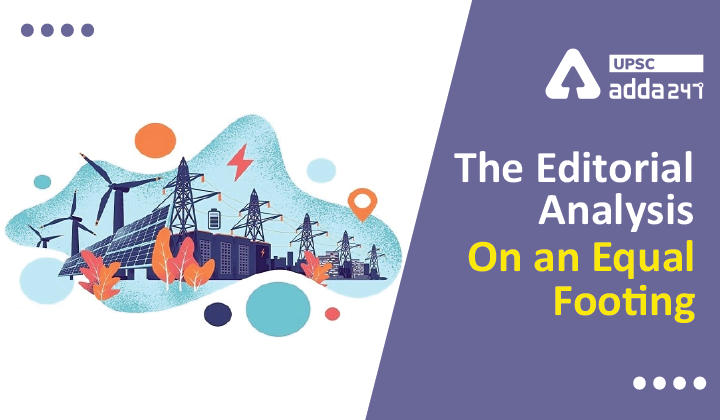Table of Contents
Strengthening Federalism- Relevance for UPSC Exam
- GS Paper 2: Federalism- Functions and responsibilities of the Union and the States; Issues and challenges pertaining to the federal structure.
Strengthening Federalism- Context
- India is the sixth-largest economy in the world with high growth potential and a population of about 135 crore people.
- India’s growth potential cannot be achieved without giving equal opportunity to every State.
Strengthening Federalism- Associated Concerns
- The low-income States (LIS) are deprived on many fronts. They have low accessibility to credit, low investments, low power availability and accessibility, and high energy costs.
- The high-income States (HIS), on the other hand, have a big share in industry and commerce because they are not deprived on the same fronts.
- Economic Disparity: The six HIS together account for 56.4% of factories and 54.3% of the net value added to the country, while their share in population is only 32.3%.
- These six HIS are Maharashtra, Tamil Nadu, Gujarat, Karnataka, Andhra Pradesh and Telangana.
- Differentiated Financial and Credit Accessibility: the above economic disparity is due to higher credit and financial accessibility (55% of total institutional credit and 56% of total industrial credit went to these five HIS) at the credit-deposit ratio.
- The six LIS (Bihar, Jharkhand, U.P., M.P., Odisha, and Rajasthan) had access to only 15% of total institutional credit and barely 5% of total industrial credit, while their share in population is 43%.
- These LIS States together receive only 50% credit from their hard-earned savings.
- Distorted Benefits of Various Schemes: The maximum benefit of the Atmanirbhar package (₹20 lakh crore) also went to the HIS as they have a higher share in industry.
- Access to Adequate Quality of Power: the availability of adequate quality power at the cheapest rate attracts investments, either private or public, in a particular location.
- Of the total consumption of electricity, industry and commerce account for more than 50%.
- The power-producing States have the advantage of power, especially hydel power, being available at lower prices.
- States with higher power purchasing costs face the difficulty of making energy traffic competitive by paying high subsidies from already scarce resources. Thus, they are unable to attract investments.
The Editorial Analysis- A Planetary Adjustment
Strengthening Federalism- Ways to Eliminate Distorted Access to Power
- Eliminate Price Discrimination in the Power Sector: This problem can be addressed by synchronising all the regional grids. This will help the transfer of energy (without compromising quality). The idea is of ‘One Nation, One Grid, One Frequency’.
- Further, this will pave the way for establishing a vibrant electricity market and facilitate the trading of power across regions through the adoption of the ‘one tariff’ policy.
- The Central Electricity Regulatory Commission is in the process of implementing a framework of the Market-Based Economic Dispatch and moving towards ‘One Nation, One Grid, One Frequency, One Price’.
- Inclusion of electricity duty under the Goods and Services Tax (GST): Apart from uniform cost, the power sector also needs uniformity in electricity duty charged by different States.
- The electricity duty should be redistributed among the States under the ambit of GST equally shared by the CGST and SGST.
- However, 100% CGST should be devolved among the States through the Fifteenth Finance Commission formula, without being shared with the Centre (as electricity duty is State subject).
The Editorial Analysis – Age and Marriage
Strengthening Federalism- Conclusion
- In order to attain higher economic growth, the States should raise the issue of uniform energy tariff and inclusion of electricity duty under the ambit of GST.
- This decision will benefit the whole nation through rational tax devolution and, therefore, provide the opportunity to attain higher growth.
The Upcoming Crisis in Indian Federalism





 TSPSC Group 1 Question Paper 2024, Downl...
TSPSC Group 1 Question Paper 2024, Downl...
 TSPSC Group 1 Answer key 2024 Out, Downl...
TSPSC Group 1 Answer key 2024 Out, Downl...
 UPSC Prelims 2024 Question Paper, Downlo...
UPSC Prelims 2024 Question Paper, Downlo...
